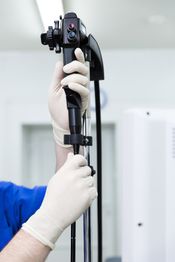A Guide to Understanding Polyps & What They Mean for Your Intestinal Health
By Mayer Clinic

Learning about polyps and their impact can help patients make an informed decision about their treatment options when it comes to intestinal health issues. If you’ve been diagnosed with this condition, read on for information about the risks, causes, and types of polyps.
Intestinal Health: A Basic Guide to Polyps
What They Are
Polyps are tissue clumps that look like flat or vertical bumps on scans. They are extremely tiny, with their average size being typically less than half an inch in width.
Why They Can Be Concerning
 Although they are completely benign in most cases, these abnormal growths have the potential turn cancerous. Physicians rely on diagnostic scans to detect them and perform biopsies to determine if they are malignant.
Although they are completely benign in most cases, these abnormal growths have the potential turn cancerous. Physicians rely on diagnostic scans to detect them and perform biopsies to determine if they are malignant.
Where They Occur
The clump of cells can appear in different parts of your body, including the cervix, colon, ear canal, and stomach. Colon polyps are the most commonly occurring types and typically require colonoscopies for the proper diagnosis.
What Causes Them
Common causes of these unusual tissue growths include severe inflammation, cysts, and gene mutations. Their ability to grow rapidly is often compared to the fast speed at which cancer cells grow and explains why they can turn malignant.
Who’s at Risk
The factors that put individuals at a higher risk for developing polyps differ on the basis of their location. Those who regularly consume a low-fiber diet, suffer from intestinal health issues, and have a family history of colorectal tumors have a greater chance of discovering these abnormal tissue clumps. On the other hand, cervical growths are more common among women in the peri-menopausal stage or who have given birth.
How They Are Treated
Consulting with your physician will help you figure out the right line of treatment for these atypical cell accumulations. In general, doctors consider the growths’ size, location, number, and malignancy risk when determining the right mode of treatment.
Mayer Clinic in Fairbanks, AK, provides patients with a variety of diagnostic and medical services. Their physicians offer a comprehensive range of preventative and treatment solutions for polyps and other intestinal health issues. For further information, call their helpful team at (907) 457-5050, or visit their website to learn more about the practice.
About the Business
Have a question? Ask the experts!
Send your question

